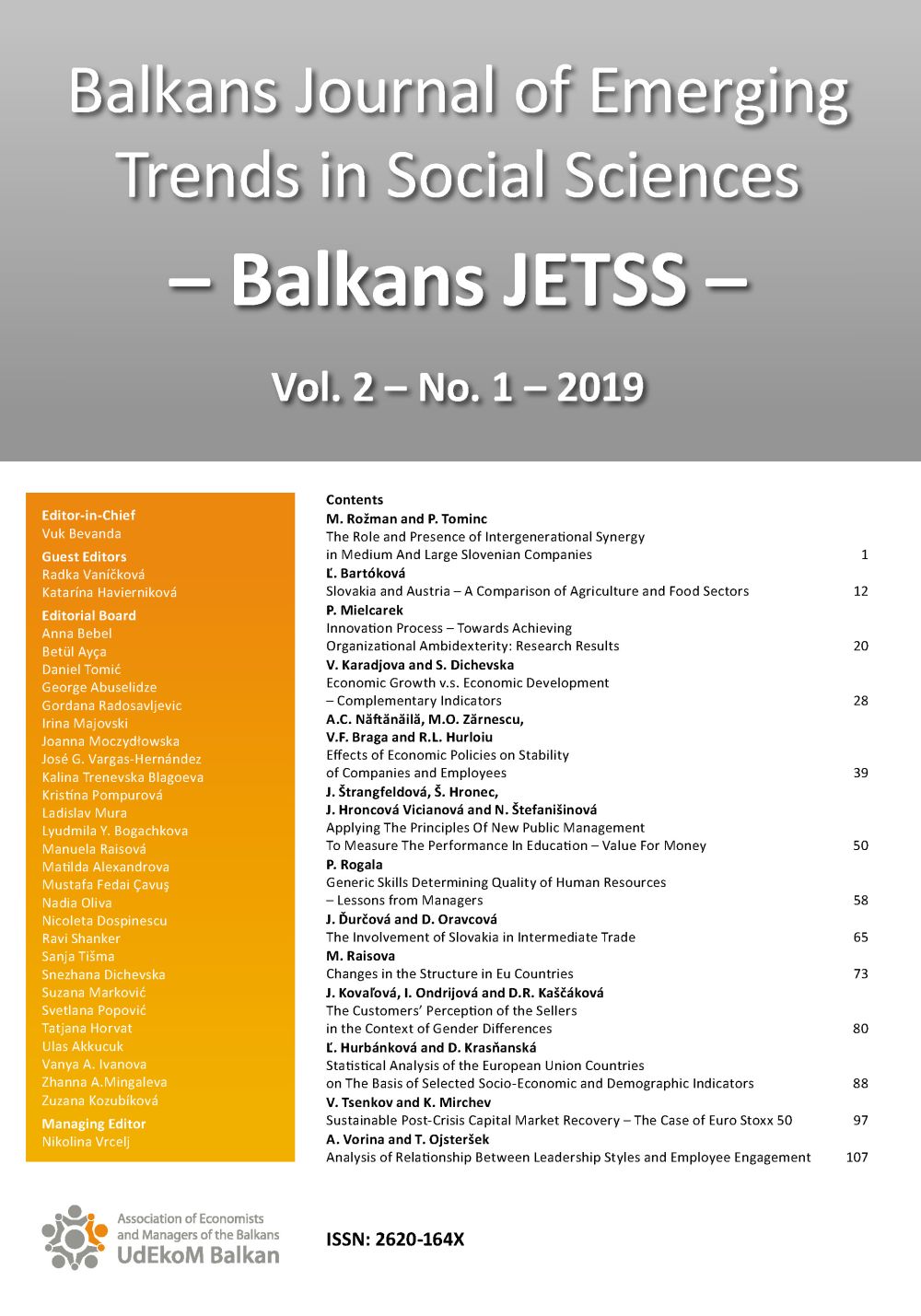ECONOMIC GROWTH V.S. ECONOMIC DEVELOPMENT – COMPLEMENTARY INDICATORS
ECONOMIC GROWTH V.S. ECONOMIC DEVELOPMENT – COMPLEMENTARY INDICATORS
Author(s): Vera Karadjova, Snezana DicevskaSubject(s): National Economy, Business Economy / Management, Socio-Economic Research
Published by: Udruženje ekonomista i menadžera Balkana
Keywords: economic growth;economic development;welfare;prosperity;GDP;Human Development Index (HDI);World Happiness Score
Summary/Abstract: The paper deals with a topic relating to the economic growth, development and general welfare of a national economy, a wider region, or even the entire world, through indicators that differentiate growth from development. It is a complex subject that contains numerous aspects of the life of a community in a certain space, which, because of its complexity, cannot be limited exclusively to economic aspects, so because of that cannot be limited exclusively to economic or monetary indicators. Life in a community besides the economic includes also legal, sociological, philosophical, psychological and other aspects, from which it logically results that measuring the development and welfare is a complex process that can hardly be limited to one indicator. In that sense, the paper addresses issues relating to production, distribution, fairness and equality, employment, unemployment, poverty, productivity, economic stability, sustainable development, human development, a sense of well-being and happiness, etc., in the direction of the thesis for the use of complementary development indicators. The complexity of the process of harmonizing the numerous indicators is further complicated by the need to calculate the degree of their mutual correlation, especially if it concerns divergent indicators or indicators that are mutually exclusive or have a negative correlation. The issue of welfare has been the subject of economic science interest since its very beginnings, even from the time of the first ancient thinkers when it was not singled out as an independent science, through the utopians, to contemporary economic thought. The economic operation and the rational use of limited resources in order to meet unlimited human needs is the heart of the economy. The basic indicator used to measure economic growth is undoubtedly the GDP and GDP per capita. But one has to take into account the distinction between quantitative growth and qualitative development, whereby GDP is an indicator of growth. Development is a broader concept that covers growth, but also technological and any other kind of advancement of the social community. Development as a qualitative feature means the advancement of the qualitative characteristics of society and the well-being of individuals, and the well-being is not only the increase of GDP, but the subjective sense of the people in the community that they live better, a sense of improving the quality of life. Growth and development together make the progress of the community. In this sense the paper elaborates just a few indicators of growth and development that are used parallel, such as GDP, Human Development Index, and the World Happiness index, that do not exclude each other and whose interwoven use gives a fuller picture of growth and development although the ranking of countries around the world according to one of these indicators may be quite different with respect to the ranking according to the other indicator. This only confirms the thesis of the need for a more comprehensive analysis of the analyzed issues and suggestions for a more comprehensive indicator that would be a complementary set of several alternative and complementary ones that would eliminate the shortcomings of its constituent parts, thereby obtaining a relevant indicator of economic development and welfare, without any intention to propose a concrete solution.
Journal: Balkans Journal of Emerging Trends in Social Sciences Balkans JETSS
- Issue Year: 2/2019
- Issue No: 1
- Page Range: 28-38
- Page Count: 11
- Language: English

